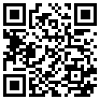Publication Ethics
In order to prevent scientific misconduct (ghostwriting, guest authorship), journal’s Editorial staff has introduced appropriate procedures. Ghostwriting means that someone contributed to creation of an article, but his/her participation as one of the Authors was not revealed, or he/she was not mentioned in the acknowledgements. Guest authorship means that participation of an Author is insignificant or none, and his/her surname was not mentioned as an Author or co-Author.
The Editorial staff explains Authors the notions of ghostwriting and guest authorship that are the manifestations of scientific misconduct, and all discovered cases of such actions taken by the Authors will be exposed, including notification of appropriate bodies (institutions employing the Authors, scientific societies etc.).
The Editorial staff shall document all cases of scientific misconduct, especially violation of ethical rules in science.
The Authors submit for publication only their own original articles that have not been published before in full or in significant parts. The Authors guarantee that submitted article has not been submitted for publication in other journal, collective work etc. The Authors are obliged to inform Editorial staff in a separate statement about the degree of originality of an article. The Authors are obliged to show (quote) publications that they used while writing an article. The Editorial staff informs that all discovered cases of unethical conduct will be exposed, including notification of appropriate bodies (institutions employing the Authors, scientific societies, associations of scientific editors etc.). The Editorial staff documents all manifestations of scientific misconduct.
The articles of Journal of civil engineering and transport (transEngin) are distributed under the terms of the Creative Commons Attribution License (CC BY-NC-ND), which permits distribution, representation and performance of the work only for non-commercial purposes and provided it is retained in its original form (no derivative works are created). For licence details please see https://creativecommons.org/licenses/by-nc-nd/4.0/
The Editorial staff applies ethical rules including among others, fair play rule, confidentiality, preventing the conflicts of interests of the Editorial staff participation of the Reviewers in the Editorial staff’s works, punctuality, confidentiality, preventing the conflicts of interests among the Reviewers, reliability of sources, authorship of a work, preventing the conflicts of interests of the Authors, reliable presenting of the research reports, originality of a work, reliability of sources, errors in published works.

